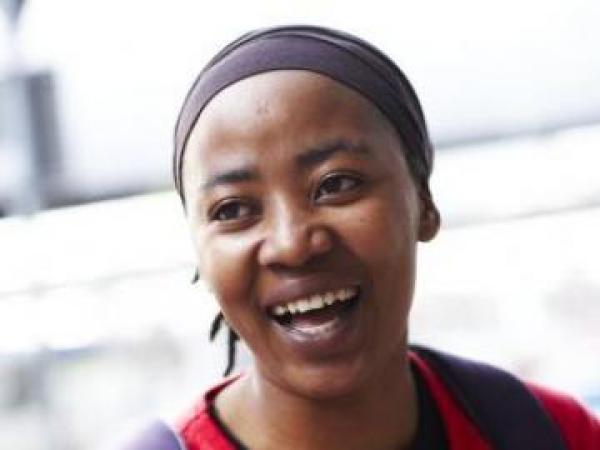

Vuyiseka Dubula, Treatment Action Campaign General Secretary.
8 August 2012
I live in a house in Nyanga township in Cape Town. But before 1994 I lived in Nyanga Bush in a tent, then a plastic shack, then a corrugated iron shack.
My family then moved to an RDP house in Brown’s Farm, Phillipi. Since 1994 there have been many improvements in housing provision, roads, health services, access to electricity and clean water.
However, there is still a long way to go to meet the basic needs of everyone. The effects of poverty are felt, especially by young people who are struggling to get education, skills and work. Too many people still live in inhumane conditions. They have to use temporary toilets and live in shacks. Young people are angry because they are excluded from society. That anger manifests in many ways, especially in young men: sexual abuse of women, violence against other men, violence against foreign nationals, substance abuse, burning the few services they have.
As the level of anger spirals out of control in many townships we must ask where are the Members of Parliament who are meant to serve these constituencies? Where are they when people need their leadership? The Auditor-General’s report for the Western Cape municipalities states that 16 municipalities underspent their budget votes or conditional grants for the year ended 30 June 2011. The total under-expenditure is about R1.5 billion. The report says, “This underspending, which is not an economic saving, is an indicator of poor financial management and often results in non-performance on service delivery and the neglect of other functions such as maintenance of infrastructure. ”
Where are the Premier’s and mayor’s leadership in all of this? The problem is countrywide, so where is the President’s leadership? Who is listening to the cries of poor people on service delivery? How many court cases and protests are needed to prove the failure to address their needs. The failure to deliver is not unique to one sphere of government; it occurs at all levels of government. The report shows that although there are resource challenges there is a lot of wastage, lack of skills and maladministration. However, in most instances these reports collect dust. There is a lack of accountability and not nearly enough action on the issues raised.
At about 2am on Monday (30 July) in my township, protests started. The protestors closed down my area and no one could leave their homes, even school children. Shops had to close. The protestors fought with workers who wanted to go to work. They burnt down traffic lights more, endangering both pedestrians and cars. They threw stones at cars on Lansdowne road. They burned a bus. Sadly, most were young people. Similar protests occurred earlier in Khayelitsha, when people burned toilets. This is disturbing. With the lack of decent sanitation in informal settlements, this just makes things worse. These demonstrations have grown extremely violent. The police had to move in to restore calm and order.
As a member of the Treatment Action Campaign, I have organised and participated in service delivery protests. Effective protest are built on alliances, strategy, clear realistic demands and the genuine intent to improve the lives of people. It is very hard to find these characteristics in the violent service delivery protests. It is hard to identify and engage with the leaders of these protests. It is difficult to understand what their demands are or what their strategy, if any, is.
At times like this, there is a tendency for political opportunists to arise. Some of them are middle-class people who live in comfy homes with more than one toilet and running water, yet they write statements which superficially appear radical. It is wrong to use the real and genuine anger of young people to promote nonsense politics. Instead we must help create alternative solutions to the crisis. We must help organise and mobilise working class young people. We must create a unified movement that will truly improve our society.
Dubula is the General Secretary of the Treatment Action Campaign.